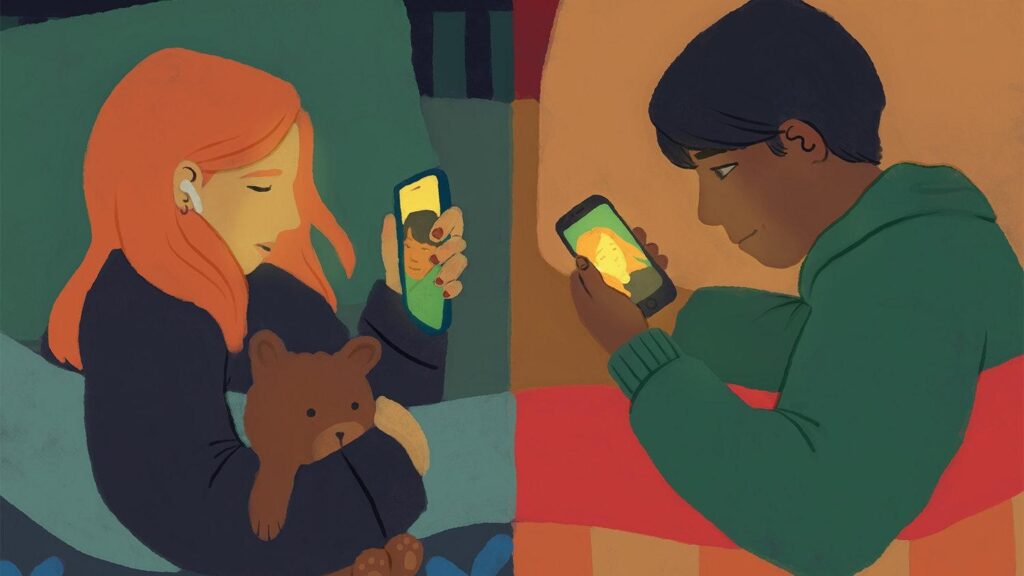Parents and Teen Dating
The natural parental instinct or rather, a uniform belief of parents says “my child doesn’t do that.” Things they say, things they do, and things they expect from us are all meant for the purpose of us having a good hassle-free life. They try to act for our best interests. However, certain words and certain rules prohibit the children from having heart-to-heart conversations with their parents. The combinations of words almost every teenager hears once in adolescence are “you can’t do it, it’s unacceptable.” Some even get to hear “children of decent families don’t indulge in such activities” or “don’t drown the family name.” Such statements sprout dilemma, “should I tell my parents?”
While both stand on the ground they think is the right one, it seems as though sharing the adolescent diaries with our parents will only invite unwanted trouble and a series of lectures. Parents stay in the shadow, unaware of what goes on in their child’s mind and life. Some are successful in establishing a friendship with their child while some only get to know episodes through external sources.

SPOILER ALERT PARENTS!
72% of teenagers date. Teen dating refers to the period in a teenager’s life where social experimentation takes place. Teens choose partners that appeal to them and analyze or negotiate a romantic relationship. They start building up expectations and look for qualities in their partner that they find attractive. For Indians, it is a western concept and not exactly welcomed. But, psychologically proven, it is not wrong for an adolescent to be sensing romantic or sexual feelings since it is considered normative behavior. According to Brooke Douglas, “the majority of teens have had some type of romantic experience by 15 to 17 years of age or middle adolescence.”
The Opposition
Teens are rebels. We like putting forward what we think suits us and often disregarding facts. Yes, most Indian parents would oppose you dating but do we think why? They too were teenagers once and went through the same hormonal changes and those sexual urges. One might think parents forbid the young puppy love for the sake of reputation in the society or the common notion, what will people say?
And as annoying as it sounds, it is not the only reason to halt your emotions. Have a look at the reasons why parents are right about opposing.

The Right Opposition
- The Heartbreaks – a parent endlessly works to give the best of life, best of comfort, and best of happiness to their child. If a relationship doesn’t work out, then it becomes difficult to cope with the stress and trauma. A child being naive and not yet entering the adult world is unaware of stress management and how heartbreaks can hamper growth, induce depression, and deteriorate self-esteem.
- The Academics – parents support their children till they complete their studies to settle down, no matter how well you manage your time, teens can have a problem prioritizing their needs. This leads to distraction and diversion from the path of academics. Nevertheless in case of interpersonal relationship issues can spoil the flow and concentration level.
- The Health – there’s no social security provided by the government for teenage mothers and neither can teenage boys support and raise children while themselves growing up. Teen dating does not always involve a sexual relationship but if teen pregnancies happen in India, it is considered rape no wonder if sex was consensual.
- The Media – teen relationships come with their charms. Everything seems new and exciting but one never knows the extent of media when it comes to sexting. Literacy level about what to share and how to sext is not prevalent. Personal information can be easily leaked and so can nudes. Sometimes for boasting or sometimes for revenge. Compromising images are used for blackmailing purposes too.
- The Control – since teens are exploring themselves there’s a strong chance of equating masculinity with physical aggressiveness. Teen dating violence is very common. Partners don’t only have emotional wars, dating abuse includes a physical dimension.
Above mentioned pointers make our parents oppose dating. Indian culture doesn’t deem dating as normal and teen dating is way far a concept to be accepted. Times are changing and more teens are evolving. A natural process like such can’t be seized and it’s important to know the child’s side too.

Taking a Back Seat
Parents take a back seat in our lives and peers become close. The opposite (or not) pulls our attention and a feeling of becoming an adult takes birth. As teens, we feel we have all the power, we can change the world. There’s a variant of ego-centrism. Parents fail to understand our side of the story or there’s a glitch in communication. Thoughts remain in the grey matter and words unspoken. A girl’s parents might tell her to be less involved with male friends and a boy’s parents might tell him to not focus on females. But do they ever ask us how the other gender makes us feel?
The Thrill Ride
Here are some reasons why teens find dating a joyous part of adolescence.
- The Romance – for an adult it may seem like a naive concept but teen romance is actually healthy and normal. Some teens are overt but most of them are paying attention to this. It helps build social and emotional skills.
- The Reality – teen dating exposes all the myths about “perfect” relationships as depicted in movies and TV shows. It becomes evident that what we watch is unrealistic and relationships do not work as easily as shown.
- The Respect – when two young adults come together they establish an understanding. A sense of respect for your partner blooms. One gets to have a deeper insight into the life of the opposite gender.
- The Identity – committing to a relationship makes one realize the demands and necessities that need to be fulfilled. You get to know what you want, what you like, who you like, and what makes you happy. Teen dating can also help you identify your sexuality. You recognize your preferences and how you want to be treated.
- The Inspiration – being in a relationship doesn’t always dislocate one from the right path. Rather, it encourages the teenager to be better. When two people exchange ideas, inspiration is very likely to hit. Partners can stimulate new interests or try things they like together.

Mutual Agreement
As it is evident that teenage relationships have their own pros and cons it is essential for parents and teens to “talk” about it. Growth cannot be terminated or delayed. Love knows no age and that’s philosophically real. But when one stumbles in love and experiences a breach of trust, without parental support, it is probable that the adolescent will start watering negativity in them. The best way to normalize this phase and letting teens know that “it’s okay” to have butterflies in the stomach when they see their crush or that “it’s okay” to like their own gender more is to have a mutual agreement.
Steps to the Agreement
- Parenting is tough and so is choosing the right discipline. Studies say that children with strict parents are more likely to have behavior problems or lose their temper. As teenagers, we hate being yelled at or scolded for our honesty. Lying starts only when a child is punished for being truthful. Hence, parents must address the situation politely and provide a calm air. The first step towards a healthy conversation is to be open-minded when it comes to “the talk.”
- Lack of knowledge is what drives teens towards recklessness. So, here comes the second step, share. When parents share their romantic endeavors or the mistakes they made as teenagers, we get the feeling that they were no different as we are. This makes us see our parents with the eyes of a friend. Telling your child the advantages and disadvantages of dating just at the beginning of adolescence is beneficial rather than scolded them after they have done something wrong. Awareness is the key.
- Setting limits is the third step and the most important. Parents shall lay justifiable restrictions on curfew time, money expenditure on food and gifts, and also physical affection. Meeting your child’s partner and knowing them can also be of great help.
*The purpose of this article is not to completely change mindsets or brainwash parents but to provide a broader perspective.
Featured Graphic Designer: Ruta Shelke
Author


2 thoughts on “Parents and Teen Dating”
Hey this was so well written .keep blessing me w your words !
This was so well written maanya !!!